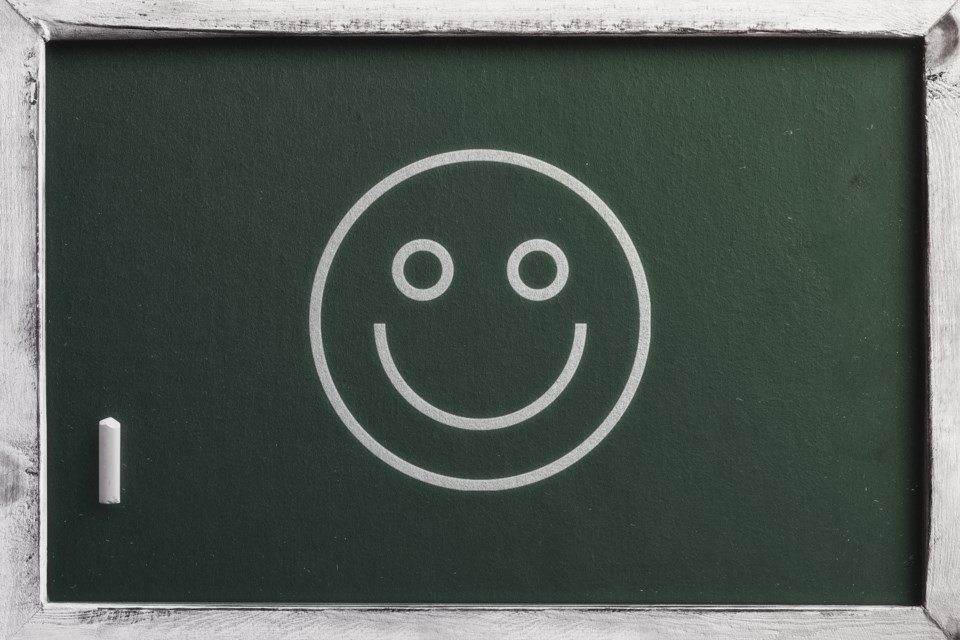Happiness among young Canadians has fallen by twice as much for the young as for the old, according to a new global ranking that places the country as the 15th happiest in the world.
The ranking, known as the World Happiness Report and produced by Gallup, the Oxford Wellbeing Research Centre and UN Sustainable Development Solutions, measured happiness through life evaluations and emotions across 155 countries.
In a worrying trend, the country group of Canada, the United States, New Zealand and Australia saw their populations in the 60 and older group receive a happiness ranking 50 or more places higher than those under 30.
Happiness for Canadians 30 and under slipped to 58th position, whereas Canadians 60 and older came in as the eighth happiest in the world.
Those born before 1965, including Boomers and their predecessors, were found to have life evaluations about one-quarter of a point higher than those born after 1980, including Millennials and Gen Z, the report said.
Paul Kershaw, founder of the group Generation Squeeze, said it's “absolutely no surprise” happiness rates are down for younger Canadians.
“It’s exactly what we’ve been saying now for over a decade: hard work doesn't pay off for them like it used to,” Kershaw said. “If hard work is not paying off, it’s harder to be happy.”
Kershaw said the largest systematic problem driving unhappiness among younger generations comes from rising home prices outpacing growth in earnings.
“You can have a good paying job but your timing in entering the housing market determines whether or not you have a middle-class experience. And younger folks are really losing that — their dream that a good home should be in reach for what hard work can earn, whether as a homeowner or renter,” Kershaw said.
“As a result, you got people feeling anxious and stressed, frustrated, wondering what they might be doing wrong, and potentially feeling a little bit bitter about the situation.”
Data from around 2010 shows young people were happier than those in middle age groups, and roughly as happy as those 60 and over. But something changed and the happiness of females under 30 declined so that this year they had one-third more negative emotions than males.
“Canada emerges as the country with the longest female decline in the available data, which started in the early 2010s, and is still ongoing,” the report found.
Central and Eastern Europe saw the opposite trend, with younger generations showing more happiness than their older counterparts — a trend that has eliminated the happiness gap between Eastern and Western European people under 30.
Finland once again came out as the happiest country in the world for the seventh year in a row, whereas Afghanistan took the spot for least happy country out of the 155 ranked.
“Global happiness inequality has increased by more than 20 per cent over the past dozen years, in all regions and age groups,” the report said.
Most countries at the top end of the happiness ranking were smaller nations; among the top 20, only Canada and the United Kingdom have populations over 30 million.
Similar downward trends in happiness among Canadians were reported in a recent global happiness survey from Ipsos Reid. That poll, which surveyed 1,000 Canadians, found happiness in Canada had dropped 14 percentage points over the past 13 years.
The survey found 71 per cent of Canadians are happy with their life. That puts Canada in the middle of the pack when it comes to overall happiness — below leaders like the Netherlands, Mexico and Indonesia, but above Sweden, Germany and South Korea.
The Ipsos poll found only 52 per cent Canadians were happy with their romantic and sex life, the third lowest among the 31 countries surveyed. Questions around happiness with their economic situation, friends and romantic partners also received relatively low positive responses.
When it came to free time, however, Canada tied for third overall alongside the Netherlands and India.
Also on Wednesday (which happens to be World Happiness Day), Statistics Canada released a more detailed breakdown of happiness trends within Canada.
Happiness topped out in Quebec, where 61 per cent of people reported high levels of life satisfaction.
Of all the provinces, Quebec reported the highest level of life satisfaction, rising to 61 per cent. That surpassed the portion of the population who reported high levels of life satisfaction in the Prairie provinces and Atlantic Canada (both 50 per cent), Ontario (47 per cent), and British Columbia (46 per cent).
Fifty-nine per cent of rural Canadians reported high life satisfaction, substantially more than the 49 per cent of city dwellers.
Racialized individuals in Canada saw the lowest life satisfaction at 42 per cent, whereas the share of people highly satisfied with life climbed to 54 per cent for non-Indigenous and non-racialized people.
Among those who reported high life satisfaction, 63 per cent gave themselves an “excellent” or “very good” score on their health, and 68 per cent gave themselves a similar score when self-rating their mental health.
The strongest signal among those who reported high life satisfaction: the 84 per cent who said their lives had a “strong sense of meaning and purpose.”
Kershaw — who spoke to Glacier Media from Ottawa where Conservative leader Pierre Poilievre introduced a non-confidence motion Wednesday that would attempt to topple the Liberal government over its carbon tax — said none of the unhappiness expressed in the series of polls that came out this week should be interpreted as younger generations willing to trade long-term solutions for short-term economic gains.
“We don’t solve our wallet problems by neglecting our climate problems. We have to be able to do both, and some politicians now are complaining either-or. That is just unrealistic,” Kershaw said.
“We have not a choice to pay for our pollution and not pay for our pollution. It’s a choice to pay less now, and get a rebate actually, or burden our kids to pay more later.”



